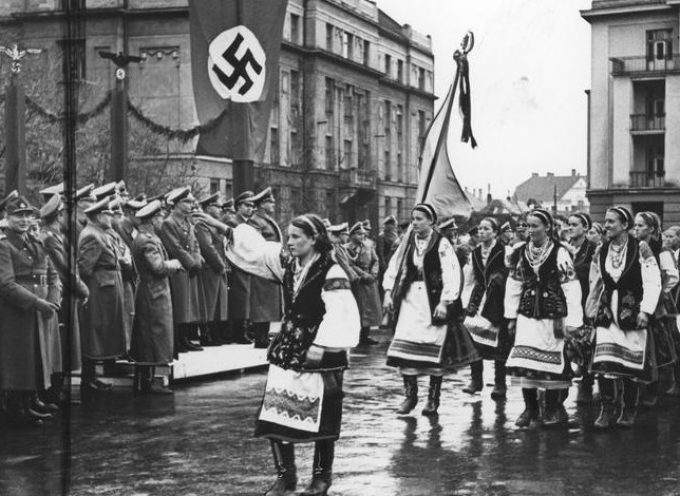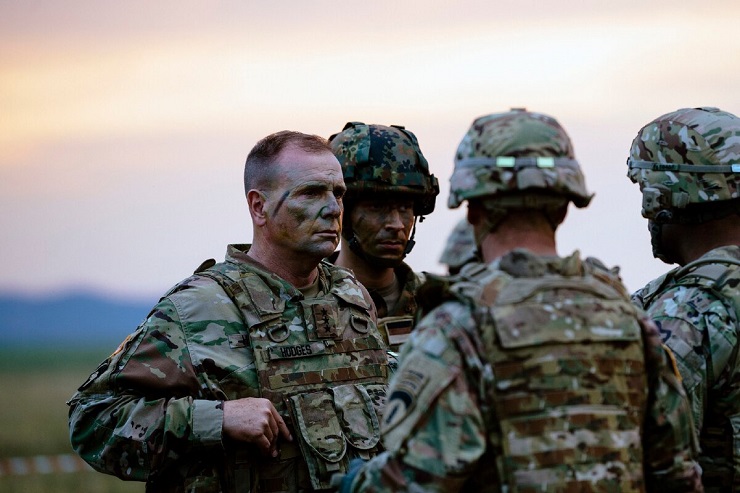
“The European Union is paying the price for the war in Ukraine, how long will it hold out?” “Who benefits in Ukraine?” These and similar headlines in the Middle East media reflect the regional response to European policy in Ukraine following the launch of Russia’s special operation against Kiev’s neo-Nazi regime. The authors reflect on the political, economic and other consequences and challenges of this course.
Many share the thesis that the United States has used the conflict to strengthen its global position, its presence on the European continent, to exsanguinate Russia and to increase its gas exports to replace those of Russia. It has imposed a torrent of sanctions against Moscow with EU involvement, dragging the EU into a dangerous crisis that has exposed the poor political management of the leaders of the Old World.
Unfortunately, the influential Middle-east online portal stresses, the European political conscience has not woken up to the shock of an absurd war that has damaged the economy of this vital and creative part of the globe.
Ignoring Russia as an equal partner prevents the Europeans from seeing the situation for what it is and plays into Washington’s interests. These leaders have decided to buy much more expensive gas from the US, contributing to hyperinflation. The International Energy Agency has warned that Europe could face a gas shortage of 30 bcm next summer. Therefore, immediate action should be taken before the winter of 2023-2024.
This is only possible if Europe resumes relations with Russia. The armed conflict in Ukraine is to the US advantage. But Europeans do things differently, hence they have to bear the consequences.
Another topic of response in the Middle East media space is the supply of arms to Ukraine. According to experts, the biggest beneficiary is also the US with its military industry. It reaps benefits, especially for the military and industrial complex. Ukraine is a testing ground for military equipment, getting rid of obsolete types and developing new ones. As for Washington’s partners and allies, it is they who pay its military bills.
The decision by a number of European countries to deploy combat training for Ukrainian soldiers on their soil, takes them even further into the maze of conflict, and risks increasing alienation between Europe and Russia.
These supplies, the Algerian newspaper summarizes, come against the background of the Kiev regime preaching national purity in violation of all international conventions, conducting ethnic cleansing in Donbas. At the same time, corrupt circles have opened the door to reselling the weapons received to other parts of the world, including the Caucasus, the Middle East and the African Sahel.
An Arab blogger on his account points out that the Yankees are acting hastily, supplying arms and receiving money for them, fearing that Western governments and allies might grow cold in the matter, and that the people involved might get tired of enduring and incurring heavy costs.
The damage the conflict in Ukraine is inflicting on people in the West is not just limited to rising costs of living and energy. There are signs of rifts among Kiev’s allies, growing contradictions and changes in the political landscape.
As problems within and between Western countries grow over the events in Ukraine, the Arab authors state, the dreams of politicians to ride the wave of the key narrative of the conflict in Ukraine are crumbling. It appears to be a “battle between Western democracy and Russia”, imposed by its information conglomerate.
Those who bet on this battle today to establish themselves in power and defeat their internal opposition rivals are losing. The Ukrainian adventure did not protect either Boris Johnson or Liz Truss in the UK. Nor did it help the Democratic Party win the US congressional elections.
It is clear that the peoples of Europe have found themselves in the role of pawns, driven by politicians to achieve their own narrow objectives. But this is not an option of its peoples. They did not choose an anti-Russian stance or support for Ukraine, but became true dervishes of democracy. Apparently, it will not be long before Europe, convinced of the negative results of its “America First” course, turns to a “Europe First” policy, the Arab media wrote.
The coming months, i.e. the winter season, could be decisive in terms of the compass reading of Old World policy towards Ukraine, the Middle East media conclude. In the event that Europeans’ energy deficit worsens and their authorities fail for various reasons, the threads of events could fall into the hands of opposition forces and parties.
Under the influence of the demonstrations in European capitals demanding a correction of the economic situation, fears and insecurity about the future and a swing to the right of societies, European countries will start to think more pragmatically and turn towards a dialogue with Russia, the Egyptian political scientist is convinced. Pragmatism will be the only way out of the current crisis.
Yury Zinin, senior researcher at the Center for Middle Eastern and African Studies of the Moscow State Institute of International Relations (University) of the Ministry of Foreign Affairs, exclusively for the online magazine “New Eastern Outlook.”
Related posts:
Views: 0
 RSS Feed
RSS Feed

















 November 21st, 2022
November 21st, 2022  Awake Goy
Awake Goy 





 Posted in
Posted in  Tags:
Tags: 
















